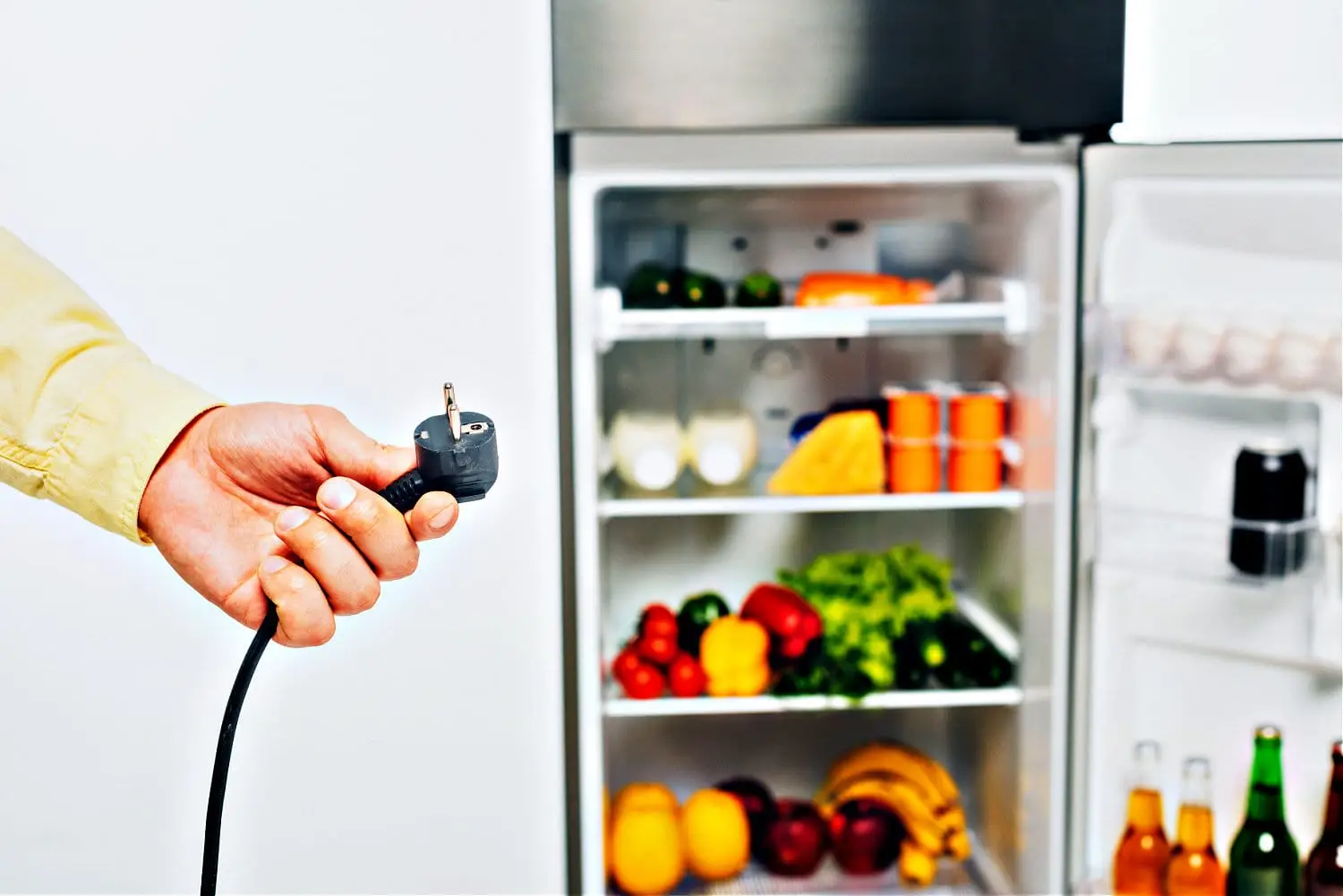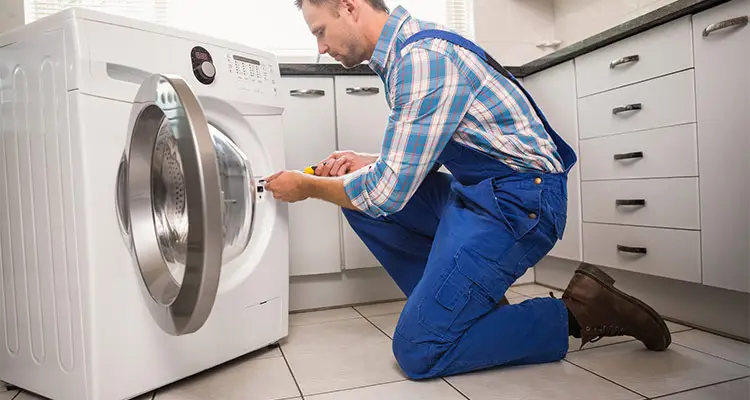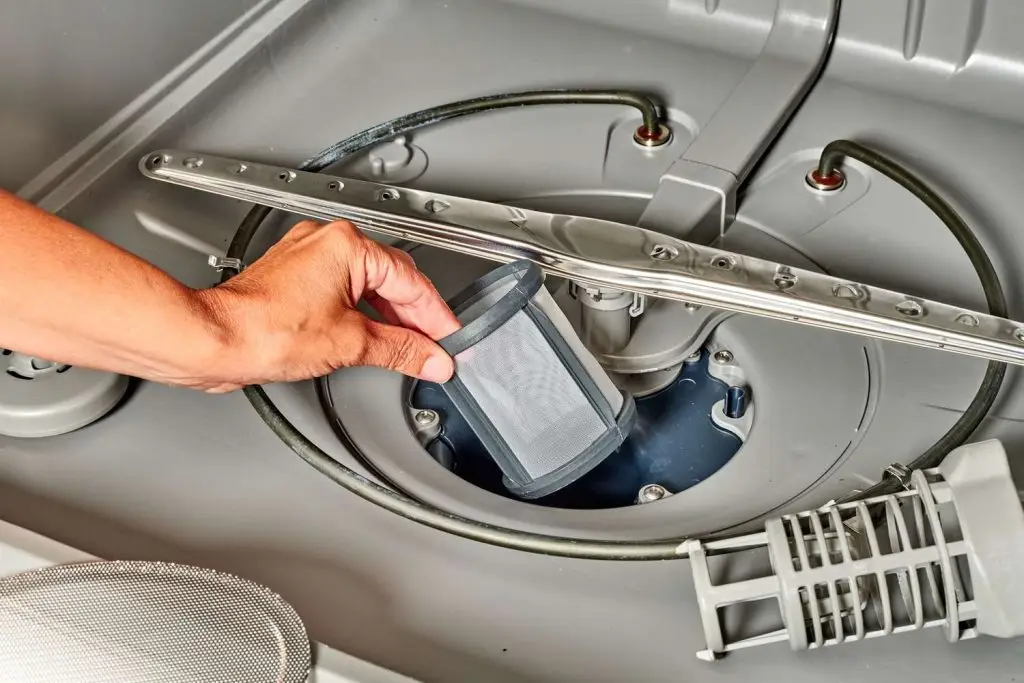Embarking on a vacation often prompts advice to unplug the refrigerator, among other appliances. However, delving into the intricacies reveals that the decision isn’t as straightforward as it may seem. Let’s navigate through the variables to arrive at a well-informed choice that caters to both the well-being of our refrigerator and our financial considerations.
Cost Considerations of Unplug the Refrigerator
Primarily, the notion of unplugging the refrigerator stems from a desire to curtail electrical costs. Yet, the inconveniences of emptying, defrosting, and unplugging might outweigh the modest electrical savings. Springfield, Illinois’s City Water, Light, and Power Company suggest that the monthly cost of keeping the refrigerator running ranges from $7 to $18—a marginal amount compared to the efforts involved in disconnection.
For a more nuanced understanding, the U.S. Department of Energy provides a specific formula for calculating appliance energy usage. Their “Appliance and Electronic Energy Use Calculator” aids in estimating annual energy consumption and operating costs for specific products.
Understanding the electricity consumption of appliances and electronics allows a more informed decision on whether to unplug them before an extended vacation.
Duration of Absence
The duration of your absence plays a pivotal role. While the cost of keeping the refrigerator operational is minimal for shorter periods, an extended absence may warrant disconnection. If a “long” vacation spans a week or 10 days, it’s likely not worth the trouble. However, for trips lasting a month or more, the proposition gains feasibility.
Contents of the Refrigerator
The contents inside your refrigerator at the time of your trip also factor into the decision. A freezer filled with perishables like frozen venison or garden vegetables may necessitate keeping the refrigerator plugged in. Conversely, more robust items like condiments and jams might endure refrigeration interruption. If uncertain about the safety of consumables upon return, it’s prudent to maintain power to the fridge.
Safety Considerations
Safety is paramount. The U.S. Fire Administration reports that home appliances, including refrigerators, contribute to around 9,600 residential fires annually. While refrigerators are less prone to causing fires, any appliance with faulty or outdated wiring poses a risk. Adhering to the U.S. Fire Administration’s guidelines on heavy-duty extension cords and ensuring the electrical cord’s integrity is crucial. If the refrigerator is not in optimal condition, it’s safer to unplug it before leaving for a trip.
Additional Considerations
Various factors may lead to the decision to keep the refrigerator running. Whether leaving food for your return, ensuring a pet is cared for, or any other reason, regular checks are advisable. Someone should monitor the refrigerator to confirm the contents remain cold, the electrical components are intact, the appliance functions properly, and there’s no fire hazard.
Conversely, if you opt to unplug the refrigerator, remember to remove perishables, defrost thoroughly, eliminate moisture, and leave the doors open. This ensures peace of mind, free from concerns about mold invading your fridge while you indulge in sunny beaches or snowy slopes.
FAQ: Unplug the Refrigerator for a Long Vacation
1. Should I unplug my refrigerator before going on a long vacation?
Yes, it is advisable to unplug your refrigerator before embarking on an extended vacation. When you’re away for an extended period, the refrigerator may not be in use, and keeping it plugged in can contribute to unnecessary energy consumption.
Three important pieces of information regarding unplugging the refrigerator for a long vacation are:
Energy Efficiency: Unplugging the refrigerator helps in reducing energy consumption and contributes to a more environmentally friendly approach.
Cost Savings: By disconnecting the refrigerator, you can save on electricity costs during the time you are not using it.
Extended Appliance Life: Giving your refrigerator a break from constant operation can contribute to a longer lifespan.
2. How do I prepare my refrigerator before unplugging it for an extended period?
Before unplugging your refrigerator for a long vacation, it’s crucial to take a few preparatory steps. Start by removing all perishable items, especially those with a short shelf life, to prevent any unpleasant odors upon your return. Additionally, clean the interior thoroughly to avoid mold or bacterial growth.
Three important pieces of information regarding preparing the refrigerator before unplugging are:
Remove Perishables: Discard perishable items to prevent them from spoiling and causing unpleasant odors in the refrigerator.
Clean Interior: Wipe down the interior surfaces to prevent mold or bacteria growth during the period when the appliance is not in use.
Leave Doors Ajar: Prop the refrigerator doors open slightly to allow air circulation, preventing musty smells.
3. Can I leave anything in the refrigerator while it’s unplugged?
It is not recommended to leave any items in the refrigerator while it’s unplugged for an extended period. Even non-perishable items can be affected by temperature changes, and the lack of temperature control may compromise their quality.
Three important pieces of information regarding leaving items in the unplugged refrigerator are:
Temperature Fluctuations: Without power, the refrigerator cannot maintain a consistent temperature, which may affect the quality of stored items.
Food Safety: Perishable or non-perishable, items left in an unplugged refrigerator may be at risk of spoilage or changes in taste and texture.
Odor Prevention: Removing all items ensures that there are no lingering odors or potential hygiene issues upon your return.
4. How long can I safely leave my refrigerator unplugged?
The duration for which you can safely leave your refrigerator unplugged depends on various factors, including the climate, the cleanliness of the appliance before unplugging, and the type of food residues left inside. In general, it is advisable not to exceed a few weeks.
Three important pieces of information regarding the safe duration of leaving the refrigerator unplugged are:
Climate Impact: Warmer climates may accelerate the formation of odors or mold, making it advisable to keep the unplugged period shorter.
Cleanliness: A well-cleaned refrigerator before unplugging is likely to remain odor-free for a more extended period than one with lingering food residues.
Food Residues: Even the smallest food residues can lead to unpleasant odors and potential hygiene issues, so a thorough cleaning is crucial.
5. Are there any additional steps to consider when reconnecting the refrigerator after a long vacation?
Yes, there are important steps to follow when reconnecting your refrigerator after a long vacation. Allow the appliance to reach its optimal temperature before restocking it with perishable items. This helps maintain food safety and ensures the refrigerator operates efficiently.
Three important pieces of information regarding reconnecting the refrigerator after a long vacation are:
Temperature Stabilization: Let the refrigerator run for a few hours to stabilize its internal temperature before placing perishable items inside.
Efficient Operation: Allowing the refrigerator time to reach its ideal operating temperature contributes to energy efficiency.
Food Safety: Ensuring the refrigerator is back to its optimal state before restocking helps maintain the safety and quality of stored food items.








